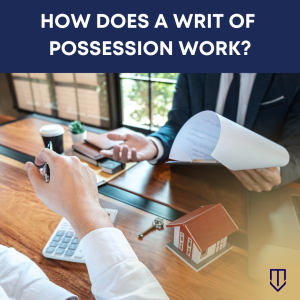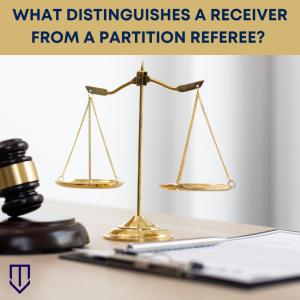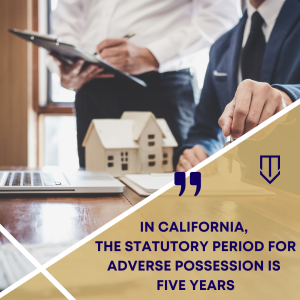 Partitions are lawsuits that split up the property between multiple co-owners so that each can take their equity out of the home. The prototypical partition is that between unmarried partners or business partners. Both own equal shares, but only one wants to end the relationship and take their money out. Partitions enable this to happen, usually ending with a court-ordered sale of the subject property.
Partitions are lawsuits that split up the property between multiple co-owners so that each can take their equity out of the home. The prototypical partition is that between unmarried partners or business partners. Both own equal shares, but only one wants to end the relationship and take their money out. Partitions enable this to happen, usually ending with a court-ordered sale of the subject property.
The presence of a trust changes this calculus. This is because a trustee typically holds the property for the benefit of another. (Estate of Yool (2007) 151 Cal.App.4th 867, 874.) As such, pursuing a partition becomes much more difficult to do, especially because partitions cannot be used to disrupt the purpose and provisions of an express irrevocable trust.
At the Underwood Law Firm, our attorneys are well-versed in these matters and familiar with the intricacies of the interactions between property law and probate procedures. The following are steps that every litigant should keep in mind before pursuing the partition of a property subject to a trust.
 California Partition Law Blog
California Partition Law Blog


 Following the explosive split between the two stars in the hit reality show, “Vanderpump Rules,” many are left wondering what will become of the couple’s $2.2 million dollar home. Prior to their split, Ariana Madix and Tom Sandoval bought a farmhouse-style home in 2019 and took their time to renovate the Property into their dream home.
Following the explosive split between the two stars in the hit reality show, “Vanderpump Rules,” many are left wondering what will become of the couple’s $2.2 million dollar home. Prior to their split, Ariana Madix and Tom Sandoval bought a farmhouse-style home in 2019 and took their time to renovate the Property into their dream home. 
 Yes, although the tenant is not allowed to exclude the non-consenting owners. The reason for this is grounded in ancient legal doctrine regarding the “right to possession” that all co-owners of property share together. Each owner may exercise this right, and each may grant it to a third party, should they so choose, even without the consent of the other owners.
Yes, although the tenant is not allowed to exclude the non-consenting owners. The reason for this is grounded in ancient legal doctrine regarding the “right to possession” that all co-owners of property share together. Each owner may exercise this right, and each may grant it to a third party, should they so choose, even without the consent of the other owners. 
 While it may not be obvious, a sizeable portion of the work that real estate agents and realtors do is court-ordered. Real estate law is a massive field, and often, the disposition of litigation results in the court forcing the sale of a property, be it a business, home, condominium, etc. As such, many realtors find themselves acting as agents or referees for parties to a lawsuit.
While it may not be obvious, a sizeable portion of the work that real estate agents and realtors do is court-ordered. Real estate law is a massive field, and often, the disposition of litigation results in the court forcing the sale of a property, be it a business, home, condominium, etc. As such, many realtors find themselves acting as agents or referees for parties to a lawsuit.  Generally, a bankruptcy proceeding acts as a stay on the collection of debt as well as any acts needed to be taken to enforce a debt. The rules regarding
Generally, a bankruptcy proceeding acts as a stay on the collection of debt as well as any acts needed to be taken to enforce a debt. The rules regarding  Receivers and partitions referees are cut from the same cloth. In actions involving property, they step in at the request of the parties or order of the court to properly dispose of or manage the property at issue. That said, there are enough differences between the two to warrant litigants being put on notice.
Receivers and partitions referees are cut from the same cloth. In actions involving property, they step in at the request of the parties or order of the court to properly dispose of or manage the property at issue. That said, there are enough differences between the two to warrant litigants being put on notice.  An action for accounting is an equitable action seeking to determine the amount owed to the parties of an action when damages are uncertain. “An accounting is an equitable proceeding which is proper where there is an unliquidated and unascertained amount owing that cannot be determined without an examination of the debits and credits on the books to determine what is due and owing.” (
An action for accounting is an equitable action seeking to determine the amount owed to the parties of an action when damages are uncertain. “An accounting is an equitable proceeding which is proper where there is an unliquidated and unascertained amount owing that cannot be determined without an examination of the debits and credits on the books to determine what is due and owing.” ( In California, a person can claim title to a piece of real property that they are not a titleholder to through adverse possession. Adverse possession requires a person to be in use of a particular piece of real property for the required statutory period. An adverse possessor, however, does not become the titleholder of a piece of property merely by using the property. Certain elements are required for a claimant to acquire title through adverse possession. The requirements for adverse possession are codified in the California Code of Civil Procedure section 323.
In California, a person can claim title to a piece of real property that they are not a titleholder to through adverse possession. Adverse possession requires a person to be in use of a particular piece of real property for the required statutory period. An adverse possessor, however, does not become the titleholder of a piece of property merely by using the property. Certain elements are required for a claimant to acquire title through adverse possession. The requirements for adverse possession are codified in the California Code of Civil Procedure section 323.